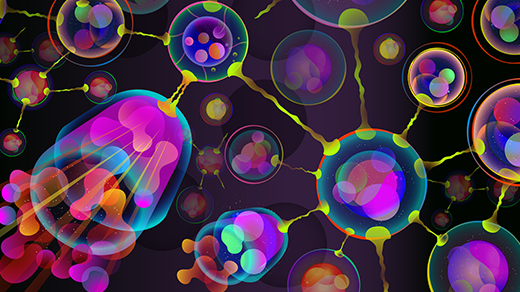Latest Articles
Exotic New Superconductors Delight and Confound
Three new species of superconductivity were spotted this year, illustrating the myriad ways electrons can join together to form a frictionless quantum soup.
How Is Cell Death Essential to Life?
Cells in our bodies are constantly dying — and these countless tiny deaths are essential to human health and multicellular life itself. In this episode, co-host Steven Strogatz speaks with cellular biologist Shai Shaham about what makes a cell “alive” and the latest developments in understanding how and why cells die.
The AI Pioneer With Provocative Plans for Humanity
While some fret about technology’s social impacts, Raj Reddy still believes in the power of artificial intelligence to improve lives.
Fish Have a Brain Microbiome. Could Humans Have One Too?
The discovery that other vertebrates have healthy, microbial brains is fueling the still controversial possibility that we might have them as well.
Teen Mathematicians Tie Knots Through a Mind-Blowing Fractal
Three high schoolers and their mentor revisited a century-old theorem to prove that all knots can be found in a fractal called the Menger sponge.
What Is Distributed Computing?
Our computers can get a lot more done when they share the load with other machines.
In the Quantum World, Even Points of View Are Uncertain
The reference frames from which observers view quantum events can themselves have multiple possible locations at once — an insight with potentially major ramifications.
What Can Birdsong Teach Us About Human Language?
We often consider spoken language to be a feature that distinguishes humans from other forms of animal life. Brain research, however, suggests that other creatures — including certain birds — share some of our neural circuitry related to language. In this episode, co-host Janna Levin explores the origins and underlying mechanisms of human speech and birdsong with neurobiologist and geneticist Erich Jarvis.
All Life on Earth Today Descended From a Single Cell. Meet LUCA.
The clearest picture yet of our “last universal common ancestor” suggests it was a relatively complex organism living 4.2 billion years ago, a time long considered too harsh for life to flourish.








